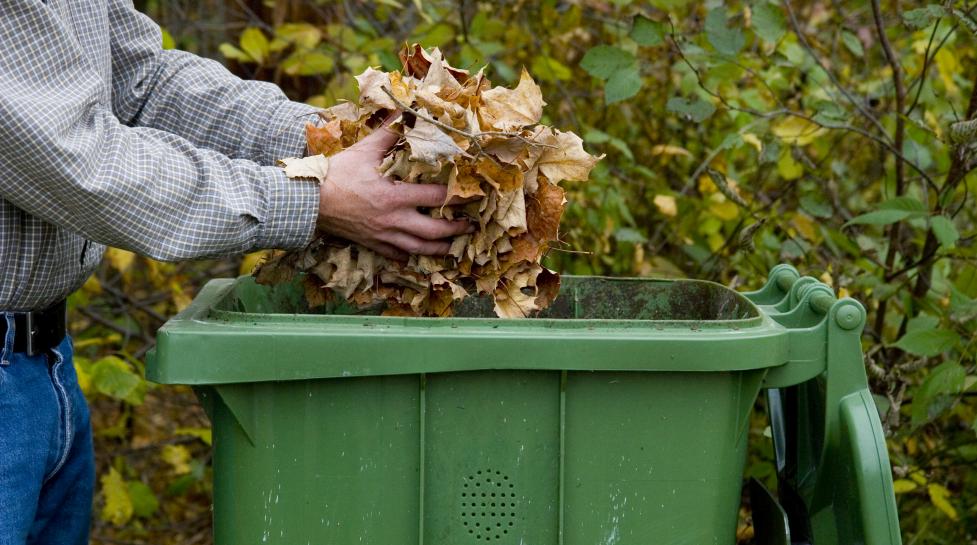What if the fall leaves gave us more than beautiful scenery?
Fall provides stunning views of bright golds, deep ochres and shocks of red. But what if the fall leaves gave us more than beautiful scenery?
Most of a tree’s nutrients end up in its leaves. Once they fall each autumn, the nutrients in the leaves can be returned to the earth to feed plants next season. In fact, the leaves from one average shade tree have as many nutrients as $50 of plant fertilizer. So, instead of piling your leaves into the trash, rake in the savings by composting them in your backyard or curbside bin.
While composting is an excellent way to reuse leaves, leaving a thin layer on the ground can also benefit your garden and local ecosystem. Excess leaves can harm your lawn and clog storm drains, but a few leaves left in garden beds, around tree bases, or gathered in a corral made from chicken wire will create cozy habitats for beneficial insects. When tidying up this fall and next spring, remember to leave a few leaves behind to support these small, helpful critters!
For those extra leaves that need to be removed, here are some fall lawn care tips to help you get started.
Remove Fallen Leaves
Rain and melting snow will carry leaves through storm drains directly to nearby streams. The nutrients in leaves can harm aquatic life. Too many fallen leaves can also smother your lawn, exposing it to mold and disease. Collecting leaves on and around your property helps keep your lawn healthy. And, a healthy lawn requires fewer chemicals, further protecting our streams and waterways.
Compost Fallen Leaves
Once you’ve done the hard work of collecting leaves, make sure you compost them for maximum benefit to your garden and the environment. Placing leaves in the trash creates methane, a gas that traps in heat and contributes to climate change. Here are two eco-friendly composting alternatives for you to consider:
Curbside composting: The easiest solution is to place your leaves in your curbside compost bin. This can be mixed with other yard waste and food scraps and is taken to a local commercial composting facility. Look for this compost bagged in a store near you.
You can also bring your compostable materials to the city’s Wood and Yard Waste drop-off center for a reduced fee.
Backyard composting: Another option is to take those nutrients from your yard’s leaves and return them directly to your garden. In your backyard compost bin, simply alternate layers of shredded leaf litter with nitrogen-rich content like kitchen waste, grass clippings or manure. Careful maintenance of your backyard compost pile will lead to nutrient-rich compost ready for the spring planting season.
Winterize Your Irrigation System
And finally, while you’re preparing your yard for winter, don’t forget to winterize your irrigation system. As temperatures drop, any water left in your pipes or sprinkler heads can freeze and expand, leading to costly damage. To avoid this, shut off your system, drain the pipes, and insulate any above-ground components. If you’re unsure how to safely drain your system, consider hiring a professional to use the blowout method. Taking these precautions now will protect your irrigation system and ensure it’s ready to go when spring arrives.
These simple steps will promote a healthy garden, protect your irrigation from freeze damage, and help safeguard our waterways. By preparing your yard now, you’ll set yourself up for success when spring rolls around.
Find more ways to prevent water pollution at www.keepitcleanpartnership.org.
